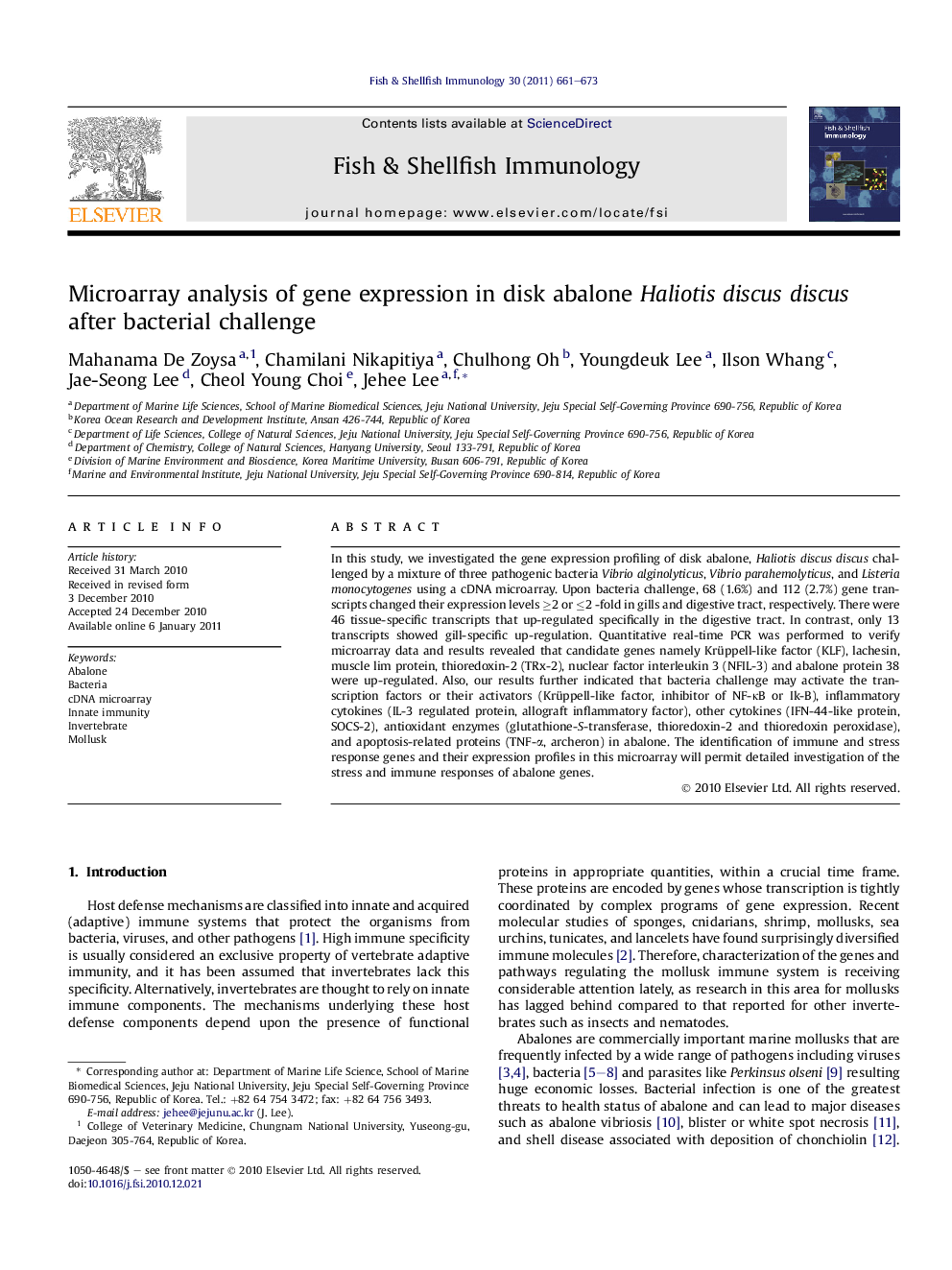| Article ID | Journal | Published Year | Pages | File Type |
|---|---|---|---|---|
| 2432497 | Fish & Shellfish Immunology | 2011 | 13 Pages |
In this study, we investigated the gene expression profiling of disk abalone, Haliotis discus discus challenged by a mixture of three pathogenic bacteria Vibrio alginolyticus, Vibrio parahemolyticus, and Listeria monocytogenes using a cDNA microarray. Upon bacteria challenge, 68 (1.6%) and 112 (2.7%) gene transcripts changed their expression levels ≥2 or ≤2 -fold in gills and digestive tract, respectively. There were 46 tissue-specific transcripts that up-regulated specifically in the digestive tract. In contrast, only 13 transcripts showed gill-specific up-regulation. Quantitative real-time PCR was performed to verify microarray data and results revealed that candidate genes namely Krüppell-like factor (KLF), lachesin, muscle lim protein, thioredoxin-2 (TRx-2), nuclear factor interleukin 3 (NFIL-3) and abalone protein 38 were up-regulated. Also, our results further indicated that bacteria challenge may activate the transcription factors or their activators (Krüppell-like factor, inhibitor of NF-κB or Ik-B), inflammatory cytokines (IL-3 regulated protein, allograft inflammatory factor), other cytokines (IFN-44-like protein, SOCS-2), antioxidant enzymes (glutathione-S-transferase, thioredoxin-2 and thioredoxin peroxidase), and apoptosis-related proteins (TNF-α, archeron) in abalone. The identification of immune and stress response genes and their expression profiles in this microarray will permit detailed investigation of the stress and immune responses of abalone genes.
Research Highlights► cDNA microarray analysis was carried out for discovering immune and stress response genes. ► Bacteria challenge stimulates the transcription of variety of immune response genes. ► Upregulation of inflammatory, cytokine and antioxidant genes indicates immune defense. ► rAbTNF-α induces superoxide anion and transcription of certain immune response genes. ► Transcriptional profiling permits to study immune components and their interactions.
